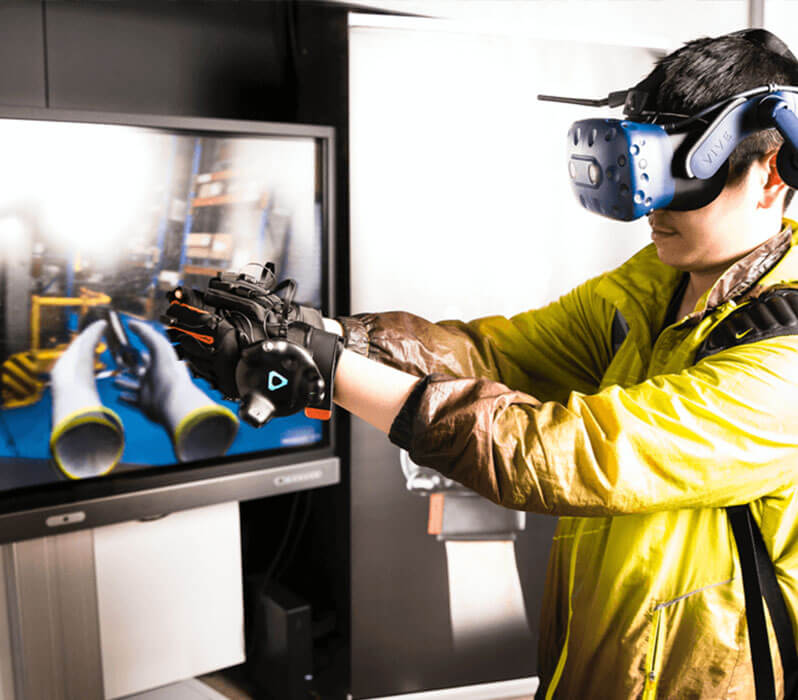Virtual Reality (VR) simulators are advanced systems that create immersive, interactive environments for users to experience. These simulators leverage VR technology, including head-mounted displays (HMDs), motion tracking devices, and sometimes tactile feedback mechanisms, to simulate a wide range of real-world and imaginary scenarios. By combining visual, auditory, and sometimes haptic feedback, VR simulators provide a highly engaging and realistic experience that can mimic physical presence in a specific environment or situation.
Applications of VR Simulators
VR simulators are utilized across various fields and industries, showcasing their versatility and effectiveness in training, education, entertainment, and research. Here are some prominent applications:
1-Training and Education: One of the most significant applications of VR simulators is in training and education, where they offer a safe and controlled environment for learning and practicing skills. This is particularly valuable in fields such as aviation, where pilots use flight simulators for training without the risks associated with real-life flying. Similarly, medical students and professionals utilize VR simulators for surgical training, allowing them to practice procedures without any harm to patients.
2-Military and Defense: VR simulators play a crucial role in military and defense training, offering realistic simulations of combat scenarios, vehicle operation, and strategy planning. These simulators help soldiers and officers to experience and react to various situations they might face in the field, enhancing their preparedness and decision-making skills.
3-Automotive: In the automotive industry, VR simulators are used for design, testing, and driver training. Engineers and designers can explore and evaluate vehicle designs and ergonomics virtually. Additionally, driving simulators help in training and assessing drivers under various conditions, improving safety and performance.
4-Entertainment and Gaming: The entertainment industry, especially video gaming, has embraced VR simulators to provide users with immersive gaming experiences. These simulators transport players into virtual worlds, allowing them to interact with the environment and characters in a way that feels real.
5-Sports and Fitness: VR simulators are also making their way into sports training and fitness, offering athletes and enthusiasts new ways to train and practice. For example, virtual reality sports simulators can mimic golf courses, ski slopes, or racing tracks, providing a realistic training environment that’s accessible regardless of weather conditions or location.
6-Research and Development: Researchers use VR simulators to study human behavior, perception, and cognition in controlled yet realistic settings. This application is invaluable in fields such as psychology, urban planning, and automotive safety, where understanding human responses to various stimuli is crucial.
Advantages of VR Simulators
Safety: VR simulators provide a risk-free environment for training and practicing potentially dangerous tasks, such as flying an airplane or performing surgery.
Cost-Effectiveness: They reduce the need for expensive physical setups and consumables, especially in fields like aviation, healthcare, and military training.
Accessibility: Simulators make training and experiences accessible to a wider audience, regardless of physical location or mobility.
Realism: Advanced VR technology offers highly realistic simulations, improving the effectiveness of training and the immersive quality of entertainment experiences.
Customizability: VR simulations can be tailored to meet specific training objectives, scenarios, and difficulty levels, providing personalized experiences.
Conclusion
Virtual Reality simulators represent a significant advancement in technology, offering immersive and interactive experiences that have transformed training, education, entertainment, and research. As VR technology continues to evolve, the potential applications and benefits of VR simulators are expected to expand, further integrating virtual simulations into various aspects of professional and personal life.
